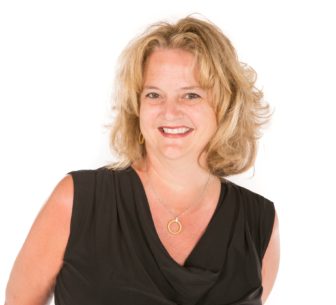 How many times as an after-school site coordinator have you crossed your fingers, hoping for a day without any accidents or medical emergencies? Once the front office is closed and the building is empty, is your program prepared?
How many times as an after-school site coordinator have you crossed your fingers, hoping for a day without any accidents or medical emergencies? Once the front office is closed and the building is empty, is your program prepared?
Students have the same health issues after school as they do during the school day. The National Association of School Nurses issued a position statement in January 2014, stating “school sponsored extended school year programs and before and afterschool programs that are a part of the school system should, at a minimum, engage the school nurse to act in an advisory capacity to address these student needs.”
Take a minute to reflect on what your program’s plan of action is for medical emergencies. Does the program have access to a nurse or person who is responsible for coordinating medical treatment for students during the day? If necessary medicine is unavailable to the program, and a program participant is in need of the medicine before or after school, how is the situation handled?
Since the passage of the 1975 Individuals with Disabilities Education Act, more children with severe medical needs attend school. These children also attend out-of-school time programs, and legally, emergency medications must be made available to them at all times. Unfortunately, complications due to asthma, diabetes, life-threatening allergies and seizure disorders have become more common occurrences for children.
In the case of diabetes mellitus, affected children require the administration of insulin with every meal and snack. To ensure the children’s safety, South Carolina (and many other states) requires medically licensed personnel to calculate and provide the insulin needed in the absence of a parent in any government setting. These life-threatening illnesses need to be managed daily, and in the case of diabetes, multiple times during the day.
The Charleston County School District’s Office of Expanded Learning determined in 2013 that coordinating the medical needs of program participants in their after-school programs needed improvement. The county was seeing instances of inequitable service provision in the district. In some schools, the programs and nurses had a good working relationship and would share information and health concerns on program participants. In other schools, there was a total disconnect, and little if any communication occurred between the school nurse and the after-school program. This inconsistency led to program participants receiving a lower or higher quality of care, depending on the nurse and program’s relationship. The district determined the long-term positive impact of employing a full-time after-school nurse would be a worthwhile investment.
The after-school nurse has several duties, and the position has been instrumental in bringing consistency in medical care throughout the district’s 47 after-school programs. She serves as the liaison between the day school nurses and the after-school programs to ensure all are informed on medical needs of students. The nurse has become a certified CPR and first aid instructor, and is responsible for ensuring all staff becomes certified within three months of hire. The position is responsible for coordinating all health and nutrition trainings for the after-school program staff and programs. Community partnerships with local hospitals and medical students who volunteer in the programs have been created through this position.
Hiring a position of a dedicated after-school nurse may not be possible for many programs or districts; however, districts and programs need to review how they are meeting the medical needs of their out-of-school time program participants. Participants have the same health needs before and after school as they do during school hours, and program administrators must ensure they are meeting a child’s medical needs.
If a program denies a child’s enrollment based on a medical condition without making any attempt to accommodate, they are at risk of violating a child’s civil rights. This only adds to the importance of engaging a nurse who can advise, review program medical policies and procedures, and assist program staff with appropriate trainings. Wouldn’t it be nice to start the day without having to cross your fingers?
Ashley Peters is a program officer with the Charleston County School District’s Office of Expanded Learning. She holds a master’s certificate in community education and has been awarded two national fellowships from the National Afterschool Matters Network (2015-2017) and the National Community Education Association (2006).






























